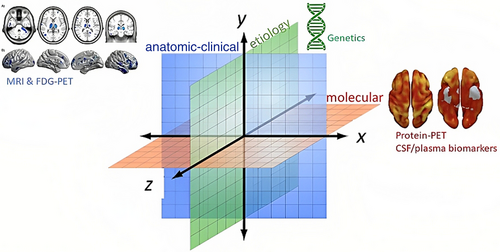The search for molecular biomarkers for diagnosing and classifying dementias is becoming a high priority need. Neurosin (Kallikrein 6, hk6) is one molecule with promising preliminary results since its levels in brain tissue, cerebrospinal fluid and blood have been found to be abnormal in Alzheimer's disease (AD). In this study, we measured plasmatic levels of neurosin in healthy individuals and patients with cognitive symptoms independently of what the final diagnosis was. We collected plasma samples from 228 controls and 447 patients finally diagnosed with either AD, Mild Cognitive Impairment, Dementia with Lewy Bodies or Parkinson-Dementia, Frontotemporal Dementia, Huntington's disease, Primary Progressive Aphasia, Corticobasal degeneration, Creutzfeldt-Jakob's disease or Pseudodementia. We found that plasmatic levels of neurosin increase with age in healthy individuals and decrease in patients with AD. Plasmatic levels of neurosin differ significantly between AD and Vascular Dementia, Pseudodementia and the control group. Analyses comparing any other form of neurodegenerative dementia to the AD group did not show significant differences. In conclusion, measurement of plasmatic levels of neurosin is useful to distinguish AD patients from subjects without neurodegenerative dementia (either Pseudodementia, Vascular Dementia or controls) although it is not useful to distinguish among neurodegenerative dementias.
Full text
Reference:
Menendez-Gonzalez M, Castro-Santos P, Suarez A, Calatayud MT, Perez-Pinera P, Martinez M, Ribacoba R, Gutierrez C. Value of measuring plasmatic levels of neurosin in the diagnosis of Alzheimer's disease. J Alzheimers Dis. 2008 May;14(1):59-67.
Full text
Reference:
Menendez-Gonzalez M, Castro-Santos P, Suarez A, Calatayud MT, Perez-Pinera P, Martinez M, Ribacoba R, Gutierrez C. Value of measuring plasmatic levels of neurosin in the diagnosis of Alzheimer's disease. J Alzheimers Dis. 2008 May;14(1):59-67.

